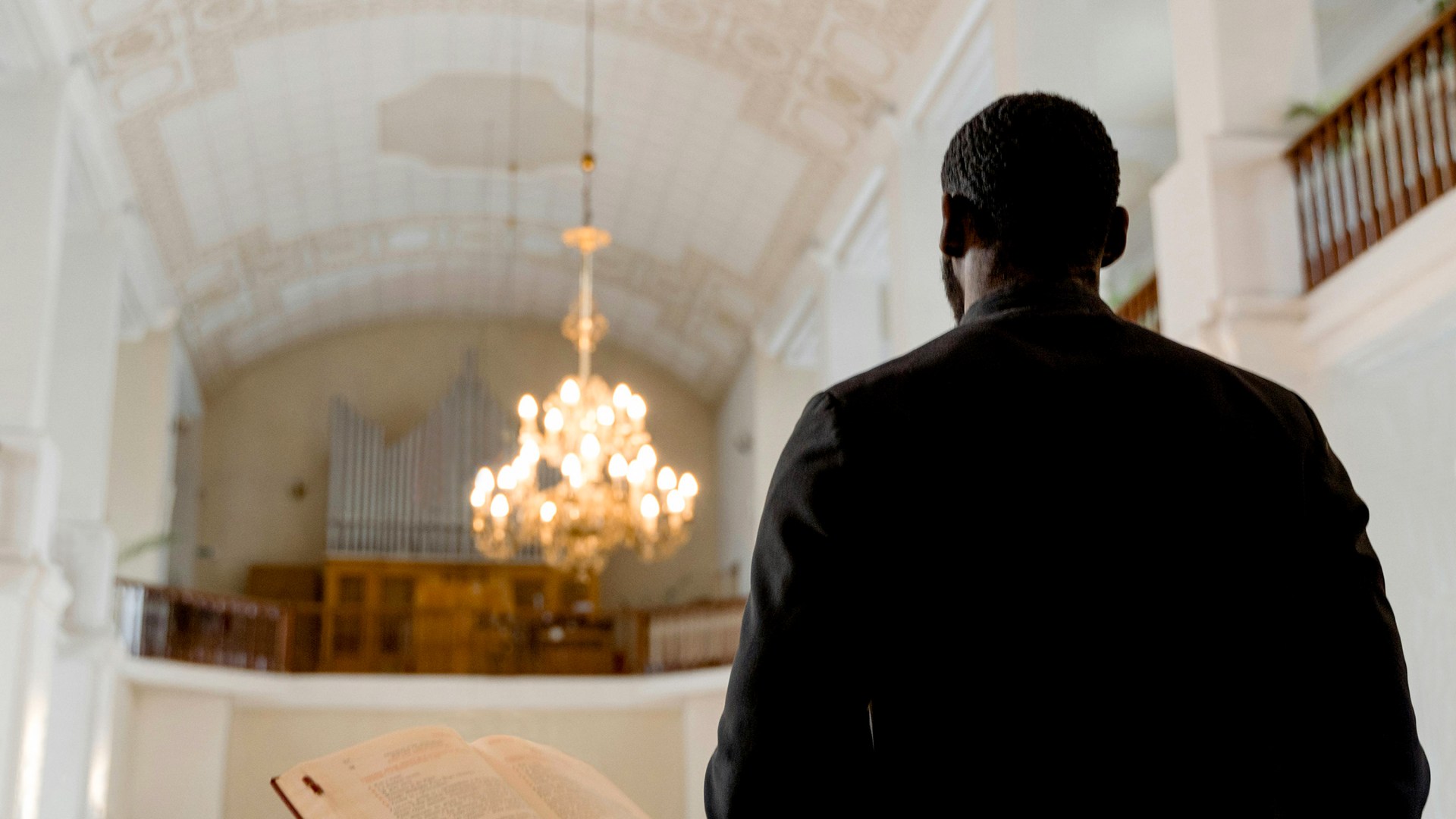Izuchukwu Ezidimma attends regular Anglican church services in Nigeria. He has never gone to a political rally. But he has experienced a church service that was both.
Ezidimma recalls the vicar inviting Onyeka Ibezim, deputy governor of the southeastern state of Anambra, to the pulpit. Ibezim greeted the congregation, promoted the governor and his political party, and then donated millions of naira to the church. (One million naira is about $650 USD.)
“This happens often. But I never made any efforts to speak up. I kept my disappointments private,” Ezidimma said. But the head of the Anglican church in Nigeria doesn’t want that to happen anymore.
On July 6, Federal Capital Territory (FCT) minister Nyesom Wike organized a thanksgiving service at Saint James Anglican Church in Asokoro, Abuja, during which he solicited support for Nigerian president Bola Tinubu and denounced their political opposition. The church’s vicar, Ben Idume, described Wike as a child of destiny and an Anglican man shining the light of God. Wike responded he was a member of all churches and all mosques and may worship God in any of them.
“The incident emphasized that the matter was important for the church [bishops] to sort out,” said Korede Akintunde, communications director of the Anglican church in Nigeria. “People can’t come to church—either as politicians or government officials—and turn the church to a campaign ground.”
On July 11, the Church of Nigeria (Anglican Communion) published a guideline prohibiting politicians from delivering political speeches in their churches. The primate, Henry Ndukuba, signed the statement days after another political church service in FCT. According to Ezidimma, cutting political ties jeopardizes the church’s funds, power, and societal influence: “It took courage for the primate to come up with this. People are not conscious that this should not be.”
In Nigeria, roughly split 50-50 between Christians and Muslims, religious identity can influence electoral choices and political alliances. Politicians leverage religious sentiments to mobilize support and obtain clergy endorsements.
Nigeria’s political parties often seek to maintain unity by nominating candidates from both religions for high national offices—a Muslim and a Christian as president and vice president. But in 2023, the ruling All Progressive Congress opted for two Muslim candidates. This prompted popular pastors to endorse the Christian candidate, Peter Obi. Some feared an Islamization agenda.
Pastor Adeola Ogundele of Sovereign Grace Community Church Abuja isn’t worried, though: He argues the parties are made up of people, not ideologies, and voting should be a matter of conscience.
“The church is not called by God to listen to the world. The church is called by God to speak to the world,” Ogundele said. “Unfortunately, what you have in our nation, Nigeria, is a reversal of these roles. The interests of the world are now the interests of the church.”
He also spoke of guarding the pulpit from financial enticements: “The church must not give its platform to politicians whose simple interest is to advertise and promote their own interest.”
The Nigerian Electoral Act 2022 criminalizes vote buying or undue influence, including donations to religious institutions intended to sway voters. But intent is difficult to prove.
In February, the Rivers State governor, Siminalayi Fubara, announced a donation of 500 million naira ($326,000 USD) during a service at St. Cyprian’s Anglican Church. Fubara said he wanted to donate to help fulfill a portion of the church’s “visionary and commendable activities.”
“Money is a huge factor. As long as these political actors will bring money, it will be very easy to yield the church’s platform for campaigns,” Ezidimma said.
Governor Charles Soludo of Anambra State urged Anglican clerics to question the source of money donated to their churches and to combat an excessive pursuit of wealth in the Nigerian society, especially among youth: “When the church turns a blind eye to the source of donations, it loses its moral authority and becomes part of the problem.”
In 2024, former vice president Yemi Osinbajo, who is also a pastor at the Redeemed Christian Church of God, spoke similarly.
Some pastors have begun rejecting these donations. In June, the senior pastor of the Pentecostal church Dunamis International Gospel Centre, Paul Enenche, rejected a 30 million naira donation ($20,000 USD) from the Kebbi State governor, Nasir Idris, during a church outreach crusade. Enenche refused the money, saying, “Government money should be used for government projects, and government things should be used for government things, and church money should be used for church things, not mixed together.”
Pastor Judah Olorunmaiye of Rhema Chapel International Ogbomoso, also Pentecostal, commended Enenche’s decision and decried the church’s excessive focus on materialism. Olorunmaiye told CT the Nigerian church must reject money from “questionable sources” and stop treating money as its primary asset: “You cannot use Satan’s weapons to build God’s kingdom.”
The Anglican church’s new measures permit only licensed clergy to speak from the pulpit. Politicians may address the congregation only from a designated platform after receiving guidance about church protocols. “Guests must be clearly informed that the Church is not a platform for promoting partisan views or political propaganda,” the denomination’s statement said. It also prohibits church officials from eulogizing or exalting “any guest in a manner that might bring the Church into disrepute.”
“The church is not excluded from engaging with the government, but we won’t endorse candidates,” said Princewill Ireoba, a director in the denomination. He encourages Christians to examine the character and track records of candidates: “When the right people are in governance, it benefits everyone. But the church’s role is to guide, not to dictate.”












